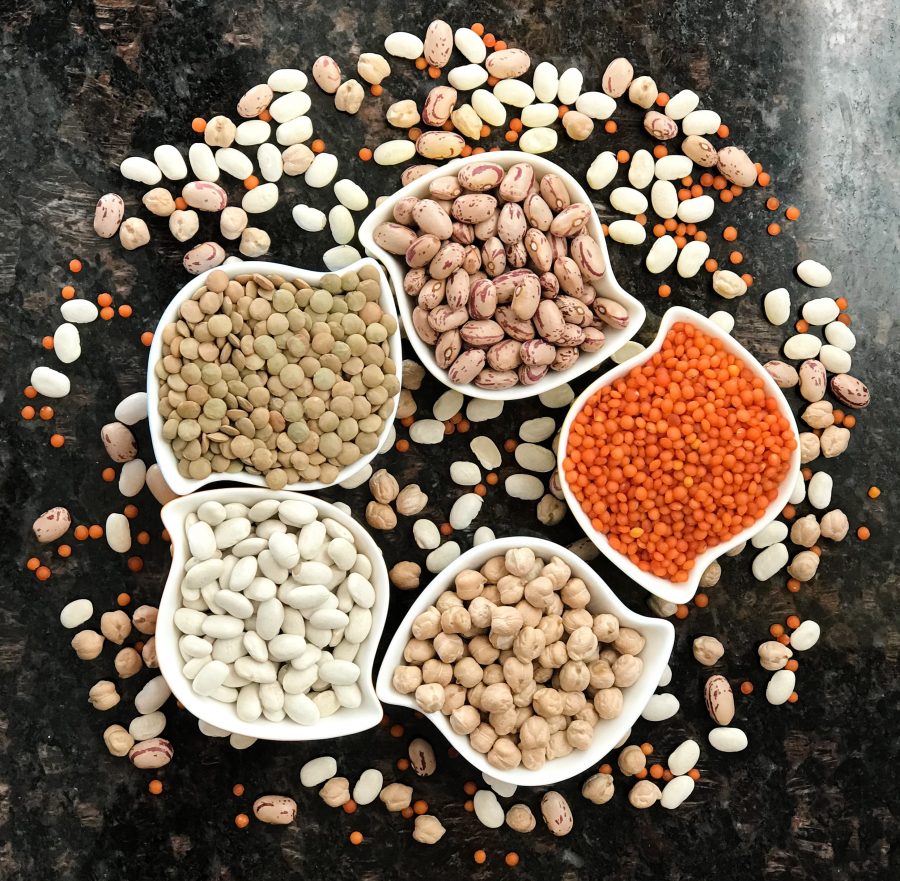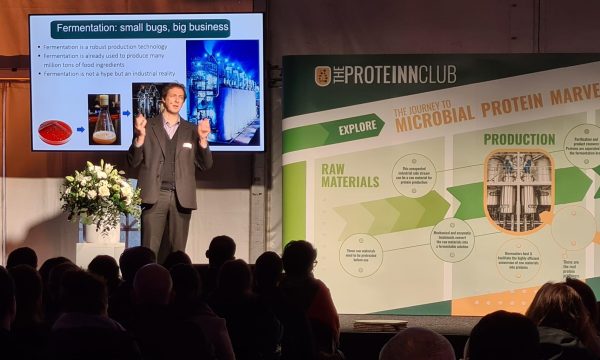Press release Local legumes deserve boost.

Market picking up slowly due to divergent motivations among consumers, growers and processors.
Despite all the benefits for our health, the climate and the environment, the Flemish eat too few legumes. This is because they are insufficiently familiar with them and do not know what to prepare with them. Local cultivation of legumes is also slow to take off, and food producers are not yet switching en masse from the imported to the local product. Interviews in the PEUL-CHAIN project of ILVO and Flemish Institute for Healthy Living show that consumers mainly want fast, easy and tasty food. The grower wants certainty about sales and good prices. The buyer wants large volumes of consistent quality at competitive prices. Hilde Muylle, ILVO: "These drives sometimes clash. To break through the local cultivation and consumption of legumes, they must be better aligned. Working on local chains remains necessary."
Main barrier for consumers is ignorance
Only 11% of Flemings spontaneously think of legumes when choosing meals (VLAM, 2022). The benefits in terms of health and sustainable production are also (too) little known. For example, respondents rate them as less healthy and sustainable than fresh vegetables.
“Unknown makes unloved and the Flemish do not know their legumes. They do not know what to make with them in the kitchen and revert to the familiar, often unhealthier dishes. Claims such as healthy, local and environmentally friendly are insufficient to overcome this barrier. Above all, there is a need for cooking inspiration to prepare quick, cheap and tasty dishes with legumes. From our research, these proved to be the decisive levers for consumers..”
Jolien Jonckheere – Vlaams Instituut Gezond Leven
Risk for unbalanced meals
Consumers who do try preparing legumes sometimes make meals that do not always conform to the principles of a healthy meal. There is an important difference in nutritional value between the dry-harvested seeds of legumes (e.g., lentils, chickpeas, red beans) and the green-harvested legumes themselves (e.g., princess beans, peas). The former are much higher in protein and therefore suitable in dishes without meat or fish. The latter, on the other hand, are not suitable as meat substitutes due to their low protein content, but are suitable as vegetables. 56% of Flemish people (VLAM, 2022) also eat protein-rich legumes as vegetables and thus add them to meat or fish dishes. Thus, eating more legumes does not reduce the meat portion.
Growers want sales security
Interest among farmers in growing legumes is growing, yet the crops are not yet breaking through in Flanders. Soybean acreage remains at less than 50 hectares, dry peas at 40 hectares, brown and red dry beans at 150 hectares. By comparison, the potato acreage in Flanders is over 50,000 ha. Interviews with growers in PEUL-CHAIN show that the lack of a local, organized chain and marketing in Flanders is the main bottleneck. Growers themselves spend (too) much time looking for parties to purchase, clean, stock, process and sell the legumes. There is also little cultivation experience and because of the small volumes, the costs per unit produced are still high.
“Farmers are looking for new, profitable crops that fit into a wider crop rotation and meet the demand for more environmentally and climate-friendly food. Legumes have that potential, but farmers today do not have sufficient certainty that they can sell their pods at good prices.”
Joke Pannecoucque – ILVO
Processor wants large volumes at competitive prices
Food producers and supermarkets are looking for more locally grown commodities that fit into their processes and profit margins. They consider achieving a positive Nutri-Score important, and that also plays in favor of legumes. That they have not yet switched en masse to homegrown pulses, according to the interviews conducted during PEUL-CHAIN, is due to the small volumes scattered across Flanders, at higher prices than imported pulses, with varying quality and as yet variable yields. There is also a need for a partner who can pre-treat the small volumes of local legumes: 'dehulling', soaking, drying.
“Processors who can market to farmers need large volumes that are preferably supplied constantly, with consistent quality, at prices that are competitive in the world market. Today, those conditions do not exist. Nor is the chain set up for small volumes..”
Geert Van Royen – ILVO
About the project
The one-year PEUL-CHAIN project was funded by the Department of Agriculture and Fisheries in the framework of the relaunch plan "Flemish Resilience 2021. The Agency for Care and Health and ILVO co-financed.
Contact
Greet Riebbels, ILVO communication: 0486260014, greet.riebbels@ilvo.vlaanderen.be
Hilde Muylle, expert on new crops at ILVO: hilde.muylle@ilvo.vlaanderen.be
Jolien Jonckheere, Vlaams Instituut Gezond Leven vzw: 0474913686, jolien.jonckheere@gezondleven.be


